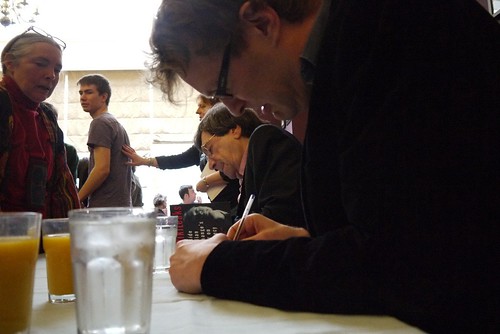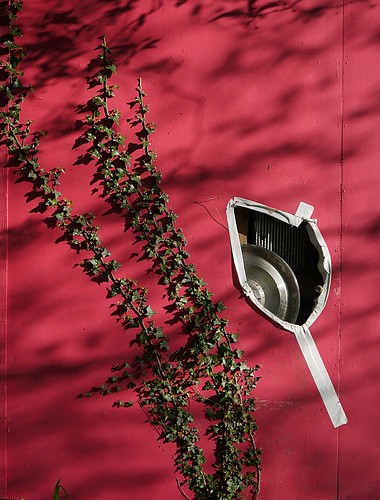Oxford to Cambridge and then London from Alasdair Allan on Vimeo.
Fascinating video of location data routinely and covertly gathered by an iPhone belonging to research Alasdair Allen. I came on it via an intriguing Guardian story which reported that
Security researchers have discovered that Apple’s iPhone keeps track of where you go – and saves every detail of it to a secret file on the device which is then copied to the owner’s computer when the two are synchronised.
The file contains the latitude and longitude of the phone’s recorded coordinates along with a timestamp, meaning that anyone who stole the phone or the computer could discover details about the owner’s movements using a simple program.
For some phones, there could be almost a year’s worth of data stored, as the recording of data seems to have started with Apple’s iOS 4 update to the phone’s operating system, released in June 2010.
“Apple has made it possible for almost anybody – a jealous spouse, a private detective – with access to your phone or computer to get detailed information about where you’ve been,” said Pete Warden, one of the researchers.
Only the iPhone records the user’s location in this way, say Warden and Alasdair Allan, the data scientists who discovered the file and are presenting their findings at the Where 2.0 conference in San Francisco on Wednesday. “Alasdair has looked for similar tracking code in [Google’s] Android phones and couldn’t find any,” said Warden. “We haven’t come across any instances of other phone manufacturers doing this.”
Lots more information (plus a downloadable open source application that enables you to locate the file containing your location data history) on Pete Warden’s site. He’s got some helpful FAQs, including these:
What can I do to remove this data?
This database of your locations is stored on your iPhone as well as in any of the automatic backups that are made when you sync it with iTunes. One thing that will help is choosing encrypted backups, since that will prevent other users or programs on your machine from viewing the data, but there will still be a copy on your device.
Why is Apple collecting this information?
It’s unclear. One guess might be that they have new features in mind that require a history of your location, but that’s pure speculation. The fact that it’s transferred across devices when you restore or migrate is evidence the data-gathering isn’t accidental.
Is Apple storing this information elsewhere?
There’s no evidence that it’s being transmitted beyond your device and any machines you sync it with.
What’s so bad about this?
The most immediate problem is that this data is stored in an easily-readable form on your machine. Any other program you run or user with access to your machine can look through it.
It’s interesting that the mobile operators also keep this data, but the cops have to get a special order to access it. (Which they often do, as we find out in evidence to murder trials, for example.) But anyone who gets access to an iPhone (or, it turns out, a 3G-enabled iPad) can get it without going through any legal palaver.
Interesting, ne c’est pas? n’est-ce pas?
(Thanks to Duncan Thomas for correcting my French.)


